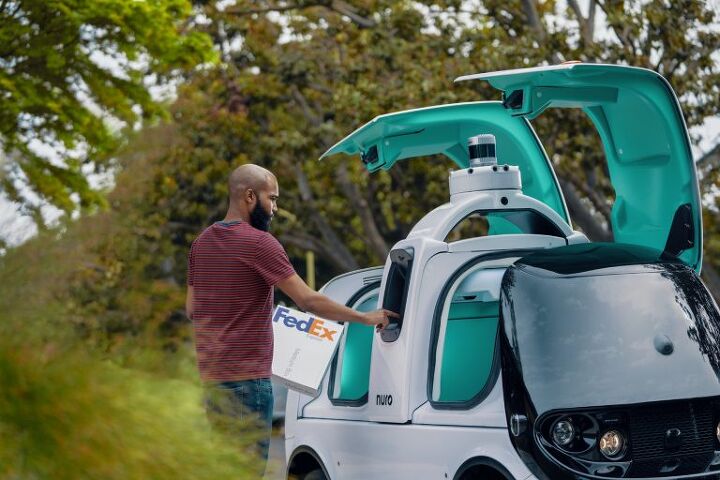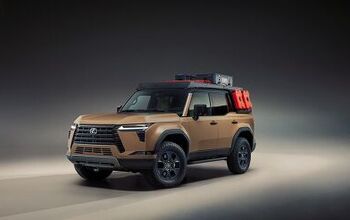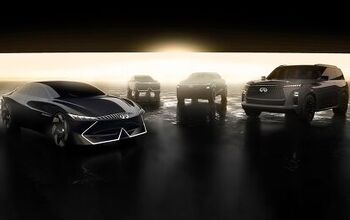Nuro Raises $600 Million, Valuation Reaches $8.6 Billion

While the concept of mobility has often turned out to be a buzz phrase used by executives unsure of where to place hypothetical revenue streams and burgeoning technologies, it has simultaneously yielded a handful of enterprising business premises with the potential to stand on their own. Nuro, the American robotics company fielding pint-sized delivery drones, is among them and has made a case for itself by eliminating humans from the equation entirely and providing unique scenarios for its services.
The startup has been getting a smattering of positive attention since its formation in 2015 and recently raised $600 million during its latest funding round, bringing its valuation to an impressive $8.6 billion.
According to the robotics firm, financing was led by Tiger Global Management with help from Baillie Gifford, Fidelity Management & Research Company, LLC, Gaorong Capital, Google, Kroger, SoftBank Vision Fund 1, various accounts advised by T. Rowe Price Associates, Inc., Woven Capital, and other investors participating in the company’s Series D funding round.
“We’re thrilled to have the backing of these prominent investors and world class companies, and honored that they support our vision of improving communities and revitalizing local commerce,” stated Dave Ferguson, Nuro co-founder and president. “We believe this investment will allow us to accelerate our commercialization strategy and better everyday life with Nuro’s technology.”
Said commercialization pertains to the expansion of the company’s R2 “zero-occupant autonomous delivery vehicles” currently being tested in several American cities. We’ve even seen them serving as delivery bots for Domino’s Pizza without incident. Kroger has similarly opted to see how the company handles grocery drop-offs in select areas, with leadership reportedly being pleased with the arrangement.
“Kroger launched its partnership with Nuro in 2018 to explore grocery delivery through autonomous vehicles,” said Yael Cosset, Senior Vice President & Chief Information Officer for Kroger. “Since then, Kroger and Nuro completed thousands of deliveries to our customers — driving innovation that supports our expanding seamless ecosystem by creating consistent and rewarding customer experiences with scalable, sustainable, and profitable solutions.”
Nuro’s greatest attributes haven’t been perfected yet, however. While the company has previously said one of its largest strengths will be sending autonomous drones into disaster areas (e.g. nuclear emergencies, viral outbreaks, wildfire zones, war-torn cities) to bring in the necessary goods, we’ve continued seeing drones accompanied by human supervisors riding around on electric scooters for mundane delivery tasks. Though this is hardly a phenomenon limited to Nuro. True vehicular autonomy has likewise remained elusive for legacy automakers boasting far more capital to fling at R&D.
It would be a lie to suggest Nuro had fallen behind the pack — and not just because it’s pursuing for different use case for AVs than businesses who also happen to sell passenger cars.
Nuro’s co-founders, Dave Ferguson and Jiajun Zhu, each worked on the Google self-driving car project that later became Waymo and the company has showcased its delivery robots are capable of operating independently during specialized testing in California, Texas, and Arizona. The National Highway Traffic Safety Administration (NHTSA) also gave Nuro approval to deploy up to 5,000 R2 vehicles on public roads in 2020, dividing the quota between two years. In August, the company announced it was setting aside $40 million to construct a factory and closed-course test track for its robotic delivery vehicles in Nevada. Nuro said the facilities will encompass 125,000 square feet of space across at least 80 acres of property, some of which would be shared with the Las Vegas Motor Speedway.
During the funding announcement, the company reiterated its commitments in Nevada and recent negotiations that led to a five-year partnership with FedEx. Nuro has since signed onto another strategic alliance with Google Cloud to “support the massive scale and capacity required to run self-driving simulation workloads, machine learning to improve model accuracy, and storage to manage important data from the vehicles.”
[Images: Nuro]

A staunch consumer advocate tracking industry trends and regulation. Before joining TTAC, Matt spent a decade working for marketing and research firms based in NYC. Clients included several of the world’s largest automakers, global tire brands, and aftermarket part suppliers. Dissatisfied with the corporate world and resentful of having to wear suits everyday, he pivoted to writing about cars. Since then, that man has become an ardent supporter of the right-to-repair movement, been interviewed on the auto industry by national radio broadcasts, driven more rental cars than anyone ever should, participated in amateur rallying events, and received the requisite minimum training as sanctioned by the SCCA. Handy with a wrench, Matt grew up surrounded by Detroit auto workers and managed to get a pizza delivery job before he was legally eligible. He later found himself driving box trucks through Manhattan, guaranteeing future sympathy for actual truckers. He continues to conduct research pertaining to the automotive sector as an independent contractor and has since moved back to his native Michigan, closer to where the cars are born. A contrarian, Matt claims to prefer understeer — stating that front and all-wheel drive vehicles cater best to his driving style.
More by Matt Posky
Latest Car Reviews
Read moreLatest Product Reviews
Read moreRecent Comments
- Corey Lewis Facing rearwards and typing while in motion. I'll be sick in 4 minutes or less.
- Ajla It's a tricky situation. If public charging is ubiquitous and reliable then range doesn't matter nearly as much. However they likely don't need to be as numerous as fuel pumps because of the home/work charging ability. But then there still might need to be "surge supply" of public chargers for things like holidays. Then there's the idea of chargers with towing accessibility. A lack of visible charging infrastructure might slow the adoption of EVs as well. Having an EV with a 600+ mile range would fix a lot of the above but that option doesn't seem to be economically feasible.
- 28-Cars-Later I'm getting a Knight Rider vibe... or is it more Knightboat?
- 28-Cars-Later "the person would likely be involved in taking the Corvette to the next level with full electrification."Chevrolet sold 37,224 C8s in 2023 starting at $65,895 in North America (no word on other regions) while Porsche sold 40,629 Taycans worldwide starting at $99,400. I imagine per unit Porsche/VAG profit at $100K+ but was far as R&D payback and other sunk costs I cannot say. I remember reading the new C8 platform was designed for hybrids (or something to that effect) so I expect Chevrolet to experiment with different model types but I don't expect Corvette to become the Taycan. If that is the expectation, I think it will ride off into the sunset because GM is that incompetent/impotent. Additional: In ten years outside of wrecks I expect a majority of C8s to still be running and economically roadworthy, I do not expect that of Taycans.
- Tassos Jong-iL Not all martyrs see divinity, but at least you tried.




































Comments
Join the conversation
It's a good idea, but will it increase congestion when a bunch of slow moving vehicles clog our roads?
Test markets should be Flint, MI and Baltimore, MD. Please post videos of said tests. Popcorn ready.